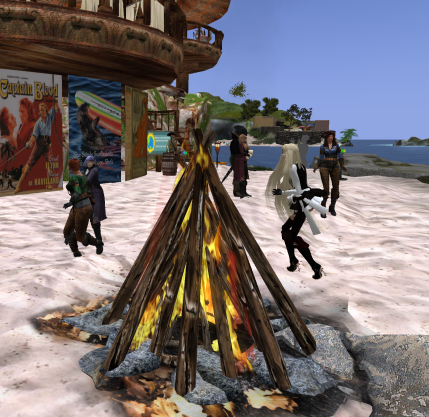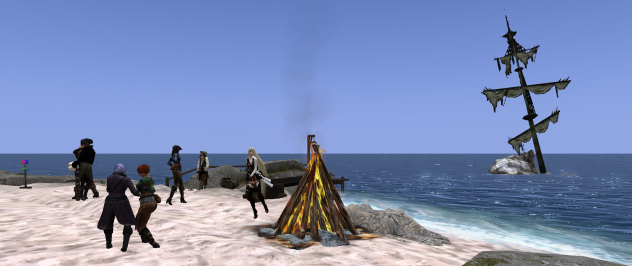 Our annual Speak Like A Pirate celebration took place Thursday, 21 September. Dani DJed with a great selection of music and we danced till our virtual boots fell off.
Our annual Speak Like A Pirate celebration took place Thursday, 21 September. Dani DJed with a great selection of music and we danced till our virtual boots fell off.
I, like so manyof you, have, over the years, bought into the romanticism surrounding the pirate life. I know the truth is brutal, violent; filled with murder and mahem. The swashbuckling adventures, hidden treasures, and daring escapades depicted in song, film, and stories have contributed to the enduring appeal of pirates.
They are with us to this day. We see news about modern-day pirates off the west coast of Africa and are appalled. Yet, the pirates, particularly those of the 18th century, capture our imagination and inspire the adventurer within.
Why is that?
One reason might be that what is known as the Golden Age of Piracy coincided with a period of intense global trade and colonization. Pirates targeted merchant ships, which were often laden with valuable cargo, making them both feared and admired for their audacity. Though this period only lasted thirty years it significantly shaped European history.
Another reason might be that we have been hammered with marketing agendas and propaganda. Popular pirate movies, books, video games, and theme park attractions ensure that the fascination with 18th-century pirates is continually reinvented and passed on from generation to generation.
Beyond the fantasy, there are some interesting facts.
Pirates have been with us since the earliest empires. The most famous pirates of the 3rd century BC were the Illyrians. At one point, Cicilia pirates captured Julius Ceasar and held him for ransom.
Then there were the Vikings. Throughout the Scandinavian countries, communities of pirate Vikings governed themselves by a council known as a Folkmoot or Thing.
Did you know that in the 16 century Queen Elizabeth I created the “Sea Dogs”? They were a private navy that conferred privateer status to her best sailors. They had the legal authority to attack and commandeer enemy ships and loot them returning a percentage of the bounty to the Crown.
In the 17th century, we had buccaneers. They were a force to be reckoned with in the Caribbean focusing on Spanish ships and settlements. They formed a decentralized coalition called the Brethren of the Coast. Many pirates who sailed the Atlantic were known to take their riches after a couple of years and come ashore in ports from Charleston to Boston and establish themselves, often, as pillars of their communities.
We often think of pirates as rowdy, drunken, seamen without regard for work or rules. A pirate ship was more than a boatload of thieves, killers, and rascals. A good ship was a well-run machine, with officers and a clear division of labor. Regardless of the time period pirates throughout the centuries strictly adhered to the “pirate’s code” and violating the code often meant severe punishment.
And underlying all of this was the belief that all persons were free and equal. Fair pay, democratic social structure, and equality regardless of sex, gender, or race could be expected aboard a pirate ship. These are values we hold dear at Etopia (you knew I’d come round to Etopia again).
Every year we gather round the keg and the dance ball to share sea-worthy songs, talk like pirates, and even have pirate battles when the seas are calm enough. This was our 16th pirate party. Mark your calendar for next year (somewhere around 19 Sep). You can bet your rum and boots we’ll be on the beach of Pirate Cove for another pirate party.

